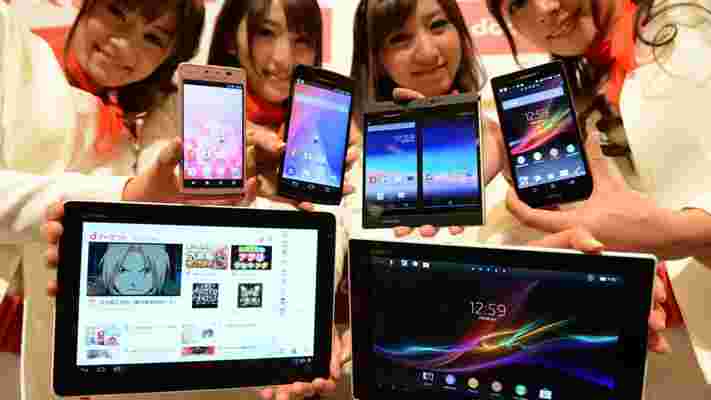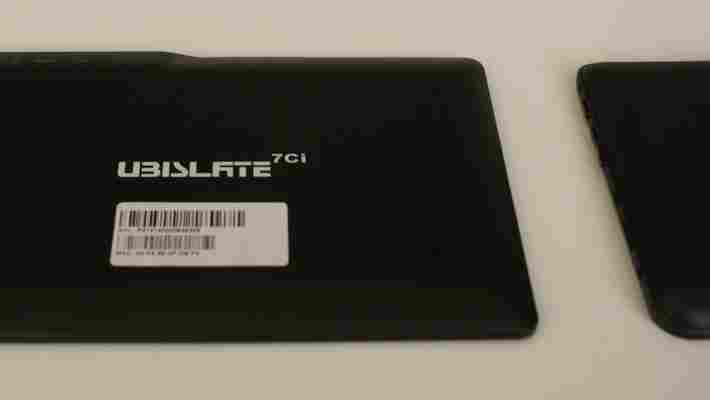We’ve seen many sources indicate that tablet shipment growth is slowing , with the latest report suggesting it could be on its way into the negative. Now it has finally happened: tablet PC shipments declined year-over-year for the first time in Q1 2014.

The news comes from a quarterly report by NPD, which explains many brands saw weak tablet shipments in the first three months of the year “due in part to delayed launches of new products.” While the firm has lowered its forecast for tablet shipments in 2014 (from 315 million to 285 million), it is still projecting an overall growth for the year:
You will notice, however, that the jump between 2013 and 2014 is minute compared to the one between 2012 and 2013. In fact, NPD expects the growth rate to fall to 14 percent this year, and slow to single digits by 2017.
The reduction in demand should be blamed on the increase in competition between large smartphones (5.5-inch and up) and small tablet PCs (7-inch to 7.9-inch). NPD expects major brands to move to larger sizes, which will in turn help increase tablet revenues. The firm projects shipments of 8-inch to 10.9-inch tablets will overtake 7-inch to 7.9-inch tablets by 2018:
“Tablet PC demand in 2014 is being affected by falling demand for the 7” class in emerging regions and in China, where many local white-box brands have experienced lower-than-expected shipment growth,” Hisakazu Torii, vice president of smart application research at NPD DisplaySearch, said in a statement. “Most major brands have recently reduced their business plans for 2014. There is a risk that the replacement cycle for tablet PCs will lengthen beyond the one to two year range unless brands can develop more attractive usage scenarios.”
While we are seeing the first quarterly dip, tablets still have a bright future for the next few years. Until we see an annual decline, the tech giants will continue to fight a very vicious war for the customers of these devices.
Top Image Credit: Toshifumi Kitamura /Getty Images
Apple is letting you delete that U2 album you don’t want
Remember last week when Apple gave everyone a free U2 album during its iPhone/Apple Watch event ? It turns out not everyone is a U2 fan (don’t tell Bono) and now the company has a quick way to remove the music from your precious song library.

To remove Songs of Innocence just head to this Apple support page . When you’re done, the album will be removed from your account.
If you’ve already downloaded the album, you’ll need to manually delete all the songs.
Thus ends our collective free-music nightmare.
➤ Remove iTunes gift album “Songs of Innocence” from your iTunes music library and purchases [Apple]
DataWind’s $38 and $80 Ubislate tablets are a great deal, but they’re probably not for you
You can approach budget tablets and smartphones from two different ways. When compared against the history of computing, these devices offer remarkable functionality at unprecedented pricing, opening up Internet access to new groups of previously unconnected people. However, when matched up against existing “premium” offerings, budget devices can feel clunky, under-powered and even hostile to the user.

DataWind’s $38 Ubislate 7Ci tablet and its $80 7C+ cellular-connected counterpart are tricky devices to review. While I can try to imagine its target users and emulate their actions on the device, the fact remains that these tablets are designed for a new class of users.
I expected a $38 Android tablet to be an impulse buy, but after several weeks with the Ubislate, it’s not something I would buy for myself. I’d consider gifting one to a friend in need, but I’d probably just go with a used Nexus 7 or Kindle Fire instead.
Both devices sport 7-inch screens and ARM Cortex A8 1.0 GHz processors. The Ubislate 7Ci came with Android 4.2.2, while the Ubislate 7C+ ran Android 4.0.4.
From what I can tell, the Ubislate fits two specific use cases: people who have previously avoided computing and connectivity because of barriers to affordability, and those in the market for a throwaway tablet that they can load up with data and pass off to someone else. Users without frequent access high-speed Wi-Fi, for instance, are in the best position to take advantage of DataWind’s data plans and low-bandwidth browsing functionality.
DataWind got its start providing tablets to the Indian government and educational system before eventually launching a consumer line. The firm manufactures its own displays to keep costs down and has developed technology that minimizes data usage when browsing so it can add on cheap Internet plans.
When I spoke to DataWind CEO Suneet Singh Tuli earlier this year, he noted that the company hadn’t planned to arrive in developed markets so soon, but it realized that even countries like the US have under-connected populations that would benefit from his devices.
At the time, Tuli claimed that first-time computer users can pick up an Ubislate tablet and quickly begin using it.
“The level of learning that they need to do to be useful is just minimal,” he said.
My experiences with the Ubislate found it to be usable, but only just barely. Getting around the interface is difficult, with important features buried deep within the settings. The tablet also seems keen on funneling you into its own mail and browser applications, instead of Google’s options.
Battery life is modest, but reasonable. On the 7Ci, I got almost three hours of continuous heavy use on a charge before the device died. That’s less than you’d get from a premium tablet, but it’s still enough for general use.
The Ubislate’s display looks and feels cheap. The screen does what it needs to do, but it’s a significant adjustment if you’re coming from the high-resolution displays on most smartphones, tablets and laptops these days. The hardware is nondescript, although a bit clunky.
Using the Ubislate feels a lot like traveling back in time about 10 years. You still have the benefit of modern apps and technologies, but the device gives off the same impression of commodity hardware that generic PCs and low-end laptops did back in the day.
While it may sound like I’m being harsh on the Ubislate, I’m actually very excited about the device’s potential to have an impact. Affordable tablets offer underprivileged citizens access to critical Internet and computing resources that can help improve their fortunes.
If you’re reading this right now, you probably don’t need an Ubislate, but there are billions of people that do.
